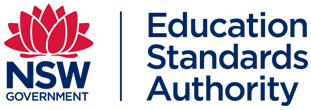Assessment and reporting
Students with disability work towards syllabus outcomes identified through the collaborative curriculum planning process. They should be given a range of opportunities to demonstrate achievement of these outcomes.
Schools should ensure that assessment activities from Kindergarten to Year 12 are accessible to students with disability. This is a requirement under the Disability Standards for Education 2005. Some students with disability need adjustments to assessment activities to enable access to the task. They also need an equitable opportunity to demonstrate what they know and can do. In some cases alternative assessment strategies may be needed.
Decisions are made at school level to offer adjustments to students with disability in school-based assessment tasks, including examinations. Adjustments can be made to assessment tasks from Kindergarten to Year 12.
Adjustments enable a student with disability to access syllabus outcomes and content on the same basis as their peers. They are intended to provide equitable opportunities for students with disability rather than give an advantage. The types of adjustments made will vary according to the needs of the individual student.
Some students may require:
- adjustments to the assessment process, eg:
- extra time in an examination
- more time to complete a take-home task, including checkpoints for progress
- rescheduled task
- scaffolded instructions
- the use of a reader and/or scribe or specific technology
- additional guidance provided, eg providing specific websites to research
- accessibility, eg providing a reading stimulus at the appropriate reading level for the student
- highlighted key words and phrases
- more information, eg providing a wordbank, a labelled diagram or a visual cue
- adjustments to the assessment activities, eg:
- questions rephrased
- simplified language
- alternative formats for questions, eg short responses instead of extended responses
- visual task instead of a reading task
- setting an alternate task
- the use of other assessment tasks completed to determine achievement of outcomes
- alternative formats for responses, e.g.:
- use of assistive technology to complete assessment tasks
- written point form or notes instead of an extended response
- scaffolded structured responses for an extended response
- responses to short objective questions to build towards an extended response
- oral responses instead of written responses
- matrix or labelled diagram instead of a written response
- multimedia presentations instead of an oral response.
- use of assistive technology to complete assessment tasks
Adjustments include practical arrangements to help students with disability access HSC examinations and the online tests for the HSC minimum standard of literacy and numeracy. These practical arrangements are known as disability provisions. Schools are responsible for any decisions about adjustments to course work and formal school-based assessment tasks throughout Years 11 and 12. There is no guarantee that the same disability provisions will be granted for the HSC examinations as those given at school for course work and assessment tasks.
Students with disability can also access disability adjustments for the NAPLAN tests. Illustrations of adjustments to assessment experiences can be found with the syllabuses.
Reporting
Reporting provides feedback to students, parents and other teachers about student progress. In a standards-referenced framework, teachers make professional judgements about student achievement. This is done at key points in the learning cycle.
The A–E grading scale or equivalent provides a common language for reporting. Teachers use the grading scale to report student levels of achievement. This applies to Stages 1 to 5 and the Preliminary year. The Common Grade Scale (A–E) or equivalent is not required to be used for students in Year 12. Students who are eligible for the Higher School Certificate award receive an assessment mark for each course undertaken.
Where adjustments are made to assessment activities, this should not restrict the student’s access to the full range of grades or marks.
For some students with disability, teachers may need to consider the most appropriate method of reporting student achievement. This may include reporting against personalised goals and syllabus outcomes identified through the collaborative curriculum planning process.
Students in K–10 working towards selected outcomes from their age and stage of schooling, or outcomes from a prior stage may be awarded a grade using the Common Grade Scale or equivalent. It should be clear which outcomes the grade is reporting against.
Schools should not use the Common Grade Scale (A–E) or equivalent for students undertaking Years 7–10 courses based on Life Skills outcomes and content and Years 11–12 Life Skills courses.
Decisions about reporting for students with disability should be made in consultation with parents/carers. Teachers should also seek advice from their school and sector.
This resource has been provided by NSW Education Standards Authority (NESA) who work with the NSW community to drive improvements in student achievement. You can find further information, news and updates on the NESA website.
© 2021 NSW Education Standards Authority for and on behalf of the Crown in right of the State of New South Wales.
